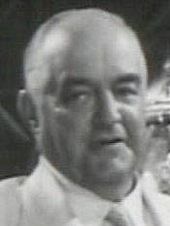LETTERS FROM THE GLOBAL PROVINCE
“I carry this fat to insulate my feelings. They got too strong for me once or twice and I had that idea. If I had stayed lean and kept moving around I would have been dead long ago.” Nero Wolfe in Over My Dead Body
Smoke and Mirrors. A fine writer of fiction in New England who also puts in time as a professor (usually not a successful pairing, but a Hank Greenberg size home run in his case) is blessed with a doctor who talks straight. To the writer, he has imparted the secret of long life: “Give up smoking and get your colon checked.” Sure enough, Mr. E, at our last lunch, had no cigarettes at hand, and he’s had his gastro-intestinal man frequently poke a very curious scope into his lower tract. And yes, he looks like he will be with us a few more decades. Far be it for us to say whether the doc is right, but at least he gives advice that is simple and easy to follow.
That’s not what doctors do. Like consultants and lawyers and a bevy of other professionals, they make things infernally complicated—a sure guarantee of their future employment. If it’s obtuse and complex, the confused patient has to keep coming back. That is the predicament of healthcare in general. All the schemes to improve it, which would mean lowering costs and improving health, come from people in the healthcare field, be they doctors, or insurance company CEOs with $4-million-dollar salaries, or expense-account academics seeking grants, or government bureaucrats sitting atop bloated Washington empires. They’re too invested financially and mentally in the healthcare game as it is to really change anything. None of us require brain surgery to know—intuitively—that anything that is going to really increase quality and lower cost will have to be simple in theory and simple to implement, free of medical charlatans and their harebrained schemes.
Losing Weight. One simple way to get health up and costs down would be to lose weight. In general, 2/3 of us are overweight, and 30% are seriously obese, with simply horrible consequences for our health. About 20% of kids are too heavy. Overeating, moreover, is linked to increased CO² emissions. “A study at the London School of Hygiene and Tropical Medicine concluded that an average lean individual emits about a tonne less carbon dioxide a year than a fat one.” (Financial Times, Health Supplement, May 29, 2008, p.6). And scientists speculate that our planet really only can sustain about half its present population over the long haul, the present surplus of food arising from the saturation of fields with nitrogen, a practice that is rather unpalatable and bad for the earth’s health.. The reasons for eating less and weighing a lot less are numerous and compelling.
Lousy Advice. Even here, on dieting, we get lousy advice. The diet industry is huge. Nobody has compiled a complete list of all the fad diets, but even abbreviated tabulations run on and on. None work very well. As importantly, even quite ethical physicians do not seem to have a grasp of how to help their patients lose weight. Usually all they have to say to us is, “You have to lose weight.” The fact is that taking the weight off is not just about eating less and following some kooky diet. It’s altering all sorts of behaviors.
Dropping the Emotional Baggage. One way or another, Ms. Ellen Walker of Myrtle Beach, South Carolina has been working with people on thinning down for better than 20 years. Way back when she went to work for an entrepreneurial woman who opened a couple of weight reduction parlors in the Carolinas. Rubensque, Ms. Walker herself has had to personally deal with avoirdupois for years and years. Her customers, at the fat salons and at subsequent fix-yourself centers, were not just fat; they were beleaguered.
What’s she discovered, it seems, is that most people are imprinted with negative emotions, lots of them, which fester in the conscious or unconscious. A young professional dieting will do well for a week or two, but then unexpectedly the wounds in the psyche will bubble to the surface and the avid dieter will fall off the wagon. Full of self pity, the calorholic will suddenly feel compelled to raid the potato chips, go for the booze, or chomp on some bacon. Ms. Walker, as personal coach, feels that the diets go nowhere until the fattie can get rid of some of the demons that haunt him or her. The bad mental baggage, in her eyes, has to go before the calories begin to come off.
Her insight is central. At a minimum one needs a close friend or even a bunch of fellow sufferers to ward off the temptations that assault us at every turn. That is, dieters do go astray as emotional bumps and grinds arise. When tensions swirl, the chocolate bar is soon at hand. The dieter goes on automatic pilot and eats twice as much as usual, giving it nary a thought. There’s a chronic need to give dieters tools to carry them through those moments when life gets out of kilter. That may just come down to somebody to talk to.
Using a Bit of Science. We’ve had occasion lately to talk with a forensic geneticist (a DNA guru) from West Virginia who’s just taken off 32 pounds. We learn from him that the successful dieter has to manage more than his emotions. Emotional balance and willpower are only half the game. He had elevated blood sugar—a problem affecting more and more of our population, particularly seniors. If not dealt with, it can lead to diabetes, a disease that is spreading through all our age groups.
As a scientist, he dug into his problem. He learned that his pouch, the weight around his middle, inhibits the metabolization of sugar, and that the belly ball of fat had to go, if he wanted to get his glucose under control. To do this in a timely fashion, he worked out some key rules. First, one has to give up alcohol, at least til substantial progress is made. Secondly, the biggest contributor to weight loss is portion control: he only allowed himself to fill half the plate, no longer letting the spaghetti strands run off the sides. There’s too much on the table, both at home and in most of the restaurants we visit. Thirdly, it’s as important to watch body mass (BMI) as it is to watch your pounds. One can actually take off the wrong kind of weight (muscle) and see one’s percentage of body fat rise. To guard against this, systematic exercise has to be part of the program, and both weight and body mass have to be watched. Both can be observed on a good set of scales: he recommends Tanita. He limbers up with light weights every day. Altogether, it is clear, the dieter should do four or five things to ensure that weight reduction leads to a healthier body.
The Addictive Society. To some it has become very clear that our life is threaded with addictions, and that we are all hooked on more ‘drugs’ that we care to admit. Food and alcohol, and drugs (legal and illegal), and cell phones, and TV, and Email, and gosh knows what else permeate our lives. Unless we can get out of this jungle of addictions, it’s hard to get thin, or sober, or calm. In the last days of our mass-market society, a glut of things we neither need nor ask for are pushed at us, turning us into consumption machines that guzzle both products and experiences.
The neuroscientists are just beginning to teach us about “delayed gratification.” They’re finding in experiments that children who can put off eating a marshmallow or responding to some other immediate gratification tend to do better in life. Ozlem Ayduk at Berkeley has found that low-delaying adults (those who cannot put off a temptation) have a significantly higher body-mass index and are more likely to have had problems with drugs than adults who can put their sundry desires on hold.
What the psychologists and head doctors are finding out as well is that those who can delay gratification do so by putting the desired object or action out of their minds. They find other things to think about that keep them pre-occupied. They don’t dwell on the Hershey bar on the table, because they are dreaming instead about a day at the beach, a concert at Bayreuth, or that new museum that has just opened in Greece.
Something to Think About. As Willie Nelson chimes, we need “Something to Think About.” Lately, we know not why, we’ve had our mind on Frederico Garcia Lorca, an incandescent Spanish poet and dramatist snatched away by early Nationalist excesses in the Spanish Civil War, right in the Granada region from whence he came. Leonard Cohen’s waltzing homage to Lorca makes one realize that the poet never disappears even if Franco’s Spain and the trials of time tried to stamp him out. Maybe Lorca, as well as anyone, told us why our modern urban existence is so overwhelming and makes it so hard for us to live our lives with proportion and health: “The two elements the traveler first captures in the big city are extra human architecture and furious rhythm. Geometry and anguish.” It’s hard to put aside a society that is so intrusive, and addictions that are so ever present, but this we must.
Thinking Thin. For sure we need to think about thin people. Perhaps we must style ourselves after the elegant William Powell and Myrna Loy, stars of the immensely successful Thin Man series of movies that came out as America’s fortunes were rebounding in the forties. Or focus on our current president, tall and thin, who does not squeeze himself into his clothes.
P.S. Once upon a time, fat men were not so commonplace, and offered us both color and bemusement. There was Nero Wolfe, the fictional detective of Rex Stout, who let nothing interrupt the  tending of his orchids up on the roof. Or Sidney Greenstreet, the compelling antihero of so many mystery thrillers. Not to be forgotten is John Shad, a Wall Street eminence and sometime SEC chairman, who was referred to as the fastest fat man in Washington. When we went out to dinner and walked across to an East Side restaurant, he would stride along impatiently, leaving the ladies and some of his guests behind. Many of these characters were Depression figures, and it’s ironic that they grew so fat when the Depression thinned so many.
tending of his orchids up on the roof. Or Sidney Greenstreet, the compelling antihero of so many mystery thrillers. Not to be forgotten is John Shad, a Wall Street eminence and sometime SEC chairman, who was referred to as the fastest fat man in Washington. When we went out to dinner and walked across to an East Side restaurant, he would stride along impatiently, leaving the ladies and some of his guests behind. Many of these characters were Depression figures, and it’s ironic that they grew so fat when the Depression thinned so many.
P.P.S. Dr.David A. Kessler, former head of the FDA, is now out with The End of Overeating: Taking Control of the Insatiable American Appetite.For more about it, see “How the Food Makers Captured Our Brains,” Science Times, June 23, 2009, p. D1
Home - About This Site - Contact Us
Copyright 2009 GlobalProvince.com